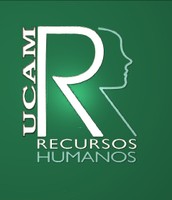Manual for the Prevention of Occupational Risks
In order to achieve the highest levels of Health and Safety at the Centre we declare the following basic principles of our policy:
- We are at the service of the university community, committed to society, the environment, attention to disability and the health and safety of our workers, respecting the regulatory framework established for each case.
- We assume the need for continuous improvement in the quality of our services, our processes and working conditions, ensuring that no task is performed without the appropriate safety measures.
- Accidents and incidents at work are avoidable by means of an adequate management that allows to adopt the measures for the identification, evaluation and control of the possible risks
- People are the most important value of our organization. Therefore, they must be qualified and identified with the objectives of the University and their opinions must be considered.
To carry out these principles, the following commitments are assumed:
- All personnel in charge will ensure correct conditions for the workers in their charge. To this end, they will show interest in risk prevention and set an example as part of their function.
- The San Antonio Catholic University promotes and establishes the necessary means so that the communication of deficiencies or suggestions for improvement are analyzed and applied.
- The spirit of innovation and continuous improvement is fundamental for the future of UCAM, which is why we establish channels for the exchange of information and cooperation between the Prevention Area, our workers and the rest of the university community to gather their suggestions and proposals for improvement.
- We promote a culture of prevention throughout the organisation and, specifically, we inform and train workers about the risks inherent in their work, as well as the means and measures to be adopted for their prevention. To this end, we have the necessary procedures for the development of the different preventive activities.
- We analyse all incidents and accidents with potential for damage and initiate their correction immediately
Prevention management system
Preventive Planning
Set of procedures for the development of preventive activities
RISK ELIMINATION AND/OR RISK REDUCTION MEASURES |
|
INFORMATION, TRAINING AND CONSULTATION OF EMPLOYEES |
|
CONTROL EXISTING RISKS |
|
CHANGE CONTROL |
|
EVENT CONTROL |
|
The Human Resources Department of the San Antonio Catholic University, through its Environmental Area, has been developing a series of activities related to the environmental management of the university center, aimed at complying with applicable environmental legislation and promoting a responsible culture among the members of the university community.
Thus, among the actions carried out, the following stand out:
Annual audits to check the degree of compliance with environmental legislation, as well as to monitor the proposed corrective measures and the level of achievement of the various environmental commitments made.
- Annual Environmental Statement and Annual Packaging and Packaging Waste Statement, through which the annual consumption of raw materials and resources by the centre is reported to the Administration, as well as the amount and type of waste generated as a result of its activity.
- With regard to the waste generated both in the teaching activity and in the rest of the facilities, these are controlled and registered by the environmental area, keeping up to date record books and supervising the correct storage, segregation and labelling of the same, as well as their delivery to Managers Authorised by the Autonomous Community of Murcia.
- Likewise, this area promotes initiatives that foster greater environmental awareness at all levels of the university community, through compliance with the various commitments made, such as the RSCO2 Initiative and the Voluntary Agreement for Environmental Responsibility.
Our list of services includes the following FUNCTIONS:
- Configuration and optimization of the staff through adequate selection, hiring and integration processes.
- Personnel administration, registrations, cancellations and contractual modifications, salary receipts, settlements, taxes, etc. in strict compliance with all legislation.
- Continuous evaluation of performance, improvement of capacity through training plans and configuration of the professional career.
- Regulation of working conditions and communication plans.
- Promotion, supervision and assurance of the prevention of occupational hazards; which includes the safety of the campus facilities and its occupants (PDI, PAS, students or visitors), industrial hygiene, ergonomics, psychosociology and monitoring of workers' health. As well as environmental management and attention to disability.
- Provision of technical-legal advice on human resources or university regulations to the university's governing bodies.

- BOE
- Official Gazette of the Region of Murcia
- Social Security Spanish
- Government
- Inland Revenue
- National Institute of Safety and Hygiene at Work
- Institute of Occupational Safety and Health of the Region of Murcia



